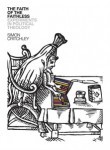
Critchley’s new cookbook for experimentation with quasi-, proto-, or post- political forms of association is compelling, often beautiful. Indeed, one cannot help but be struck by the way such good writing, such clear formulations, of our contemporary political scene have emerged under the rubric of the theologico-political (assuming here that alongside Critchley’s book we could also name Paul Kahn’s Political Theology, Giorgio Agamben’s Power and the Glory, and Eric Santner’s Royal Remains, all important figures in my little pantheon of ‘where we are today’). And while this clustering of such forceful cultural diagnoses under the aegis of political theology for me still feels surprising, maybe this surprise is just the point, an indication of a form of sensibility that has not yet become common, tired, worn out. In any case, this is a surprise worth reflecting on in the sense that we could wonder aloud about why it is that– at this particular moment in time– an attention to the theologico-political seems to focus very directly and illuminatingly on those contemporary paradoxes, deadlocks, or experiences of what Boris Groys explores so provocatively in his Communist Postscript as being oddly “stuck” in and with the problem of the common and the shareable.
“Baptism…now saves you…through the resurrection of Jesus Christ, who has gone into heaven, and is at the right hand of God, with angels, authorities, and powers made subject to him.” (1 Peter 3:22)
Aside from winning awards for the number of clauses in a single sentence (and the Greek sentence actually begins before verse 21), today’s epistle reading makes big claims! God has made all powers subject to Jesus Christ! But “all” is a big term, especially in a world that doesn’t always feel subject to God. And so the question that lingers today is, “What did the author of 1 Peter mean by “angels, authorities, and powers?”
The “comfortably numb” posture of many a pastor in the West has become a commonplace, aided and abetted by congregations who want to have confirmed what they already believe and who want their “prophets” fit for the Rotary or the Chamber of Commerce and who either can’t see or can’t say what they see.
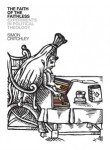
What is really at stake in this book are the differences, and similarities, between a faithlessness that disguises some form of commitment, and a faithfulness that is also more modest in its claims and cautious in working out its implications and practices. If this is the case, then the question, for me, becomes that of the nature and extent of the differences between these two forms of faith. What are the differences between (Critchley’s) faith of the faithless and the less strident forms of the faith of the faithful?
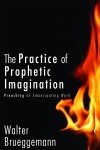
“The Practice of Prophetic Imagination” (Fortress, 2011).
This new book is for me a continuation of my earlier book, The Prophetic Imagination (Fortress, 1978). It is an attempt to think about “prophetic preaching” in the context of the US church where any prophetic dimension to evangelical faith is mostly unwelcome.
I have wanted at the outset to correct two most unfortunate caricatures of the prophetic. On the one hand, there is a conservative tradition that thinks that the prophets are primarily in the business of “predicting Christ.” Of course there is no such thing in this context. On the other hand, liberals regularly associate “the prophetic” with social justice and social action. But it strikes me how rarely the ancient prophets take up any specific issue of social justice.
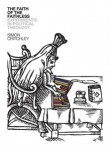
In Simon Critchley’s Wildean confraternity or consorority of the faithless, faith is a commitment, a proclamation of fidelity to an infinite ethical demand which enacts a new form of subjectivity. As such, faith is not related to belief in the existence of God but to an experience that is shared by agnostics, atheists and theists alike. Faith, we might say, is a/theistic, cutting across such distinctions.
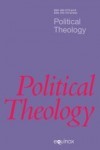
The editors of Political Theology are pleased to announce that the latest issue is now available on the web. Issue 13.1 (January 2012) features a guest editorial by Gerald J. Beyer of St Joseph’s University, Philadelphia who looks at the connections between today’s Occupy Wall Street movement and Poland’s Solidarity trade union movement of the early 1980s, and points to what this new activist turn on issues of social justice could signal for American political life.
The editorial and the reviews section are – as always – open access. The issue also carries articles by Andrew Brower Latz, Thomas A. James, Joseph Ballan, Kristen Tobey and Patrik Hagman.
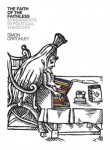
Religious truth is like troth, the experience of fidelity where one is affianced and then betrothed. What is true, then, is an experience of faith, and this is as true for agnostics and atheists as it is for theists. Those who cannot believe still require religious truth and a framework of ritual in which they can believe. At the core of Wilde’s remark is the seemingly contradictory idea of the faith of the faithless and the belief of unbelievers, a faith which does not give up on the idea of truth, but transfigures its meaning.

